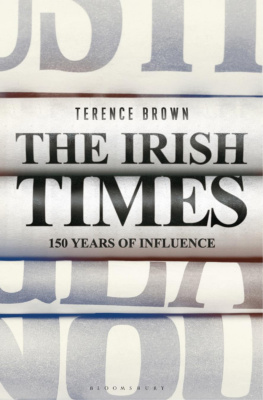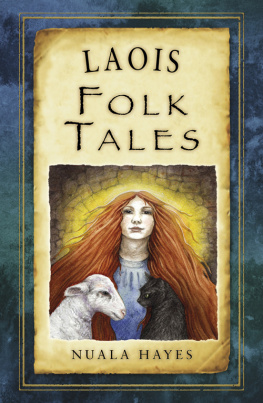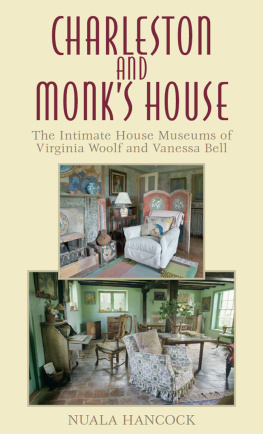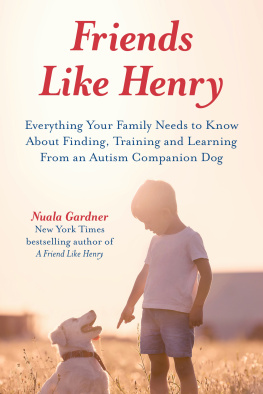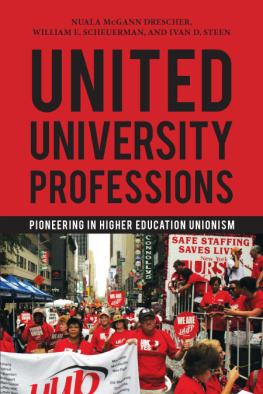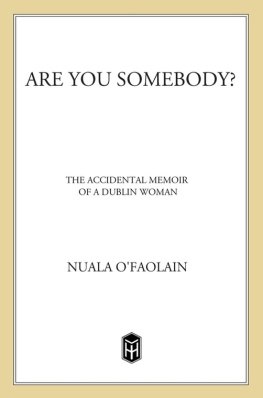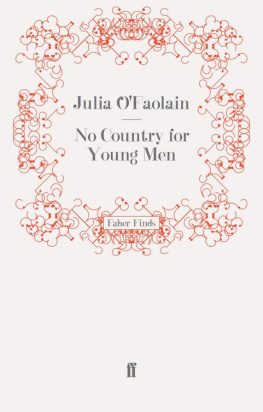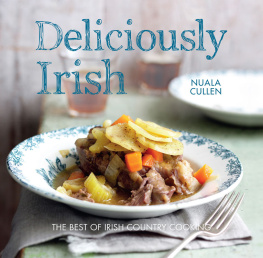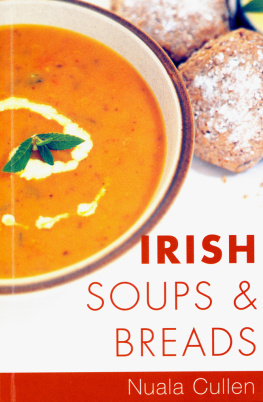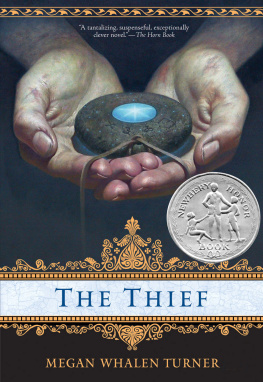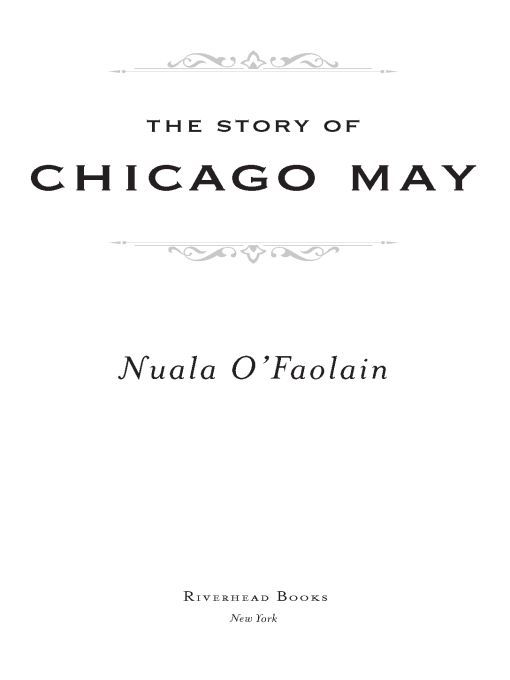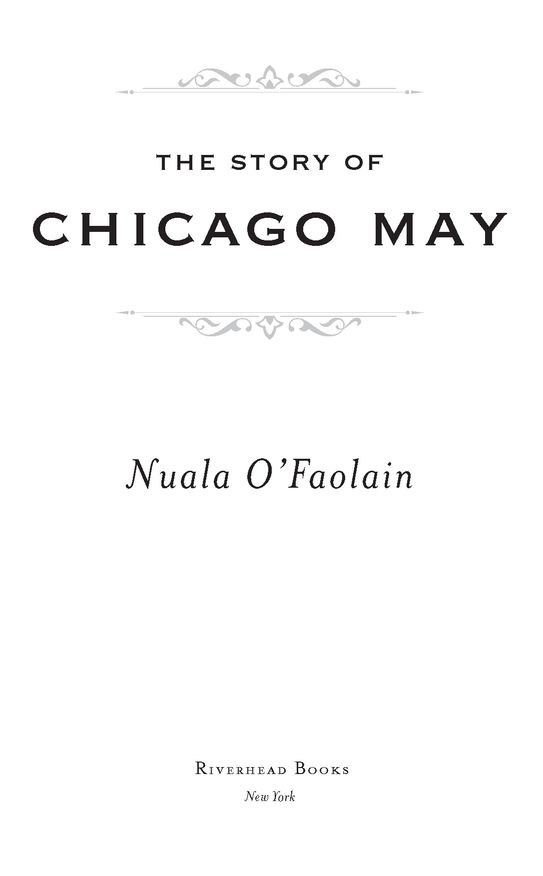Table of Contents
More Praise for The Story of Chicago May
Inventive... An exuberant and eloquent storyteller. More than a story of an amusing scoundrel... Along the way, OFaolain shares the joys of discovery and the frustration of not knowing the unknowable.... As much as any biographer can, OFaolain has brought May Duignan back to life. USA Today
A deeply absorbing account that rescues from obscurity (though not, in her day, infamy) a woman born into the trap of a small Irish village near the end of the 1870s. Chicago Tribune
This is a wonderful book not only because of the story it tells, but also because of the compelling way OFaolain tells it.... OFaolain is a gifted writer. Houston Chronicle
Nuala OFaolains prose is scrupulous, elegant, and achieves a subtle lyricism while never straining for effects.... The sentences, zinging with detail, full of graceful loops, are wonderful to read even when what they are describing is terrible.... What makes the book beautiful as well as useful is the grace and integrity of OFaolains writing: unfailingly humane, never manipulative, shot through with almost startling shafts of empathy, Mays story has the richness, the strange electricity of fictionthough it is not a fiction of any kind.
The Irish Times
What lifts this book above mere biography and speculation is OFaolains intuition as she thinks herself into Mays footsteps.... So vivid is OFaolains portrait of May that by the books end we feel almost as if we have known her, as if the Queen of Crooks has been in the habit of dropping in on us for an occasional chat, a boast, and a slug of brandy.... [OFaolain] has written a book that will enthrall and captivate and remind us that running away can, in fact, be a running toward. Mark my words, this book has literary prizewinner written all over it.
Daily Mail(London)
OFaolain writes wonderful prose.... A wonderful book not only because of the story it tells, but also because of the compelling way OFaolain tells it. Edmonton Journal
A biography with narrative muscle and thrilling historical relevance.
Kirkus Reviews(starred review)
Captivatingly rendered. Elle
A fresh and informative view of the turn-of-the-twentieth-century America, and fascinating testimony to the need to tell and preserve true stories from all walks of life. Booklist
The biographer makes herself a complement rather than an intrusion, and May emerges lively, unique, and cut from the cloth of Irish and American reinvention. Publishers Weekly
Here [May] is brought vividly to life by bestselling author OFaolain.... an exciting read. Library Journal
Praise for Almost There
A uniquely thoughtful meditation on the notion of happinesswhere it comes from and how to know it once youve got it... Poignant, elegantly shaped, and deeply affecting. The Oregonian
Disarmingly honest, painfully funny, and sharply observant... Almost There is another letter from a wise friend. USA Today
OFaolain is still that ferociously truth-telling woman.... It is such unrepentant honestyand her almost childlike determination to do betterthat gives her book its strength.
The New York Times Book Review
Remarkable... It is writing instantly at home with the innate rhythm and music of language, writing that knows the beauty that simple words and sentences can build. A truly memorable work.
Rocky Mountain News
Praise for My Dream of You
Full of brilliant writing and heartbreaking insight. Newsweek
Ingeniously explores the consuming power of both passion and the past. Entertainment Weekly
A grand achievement in storytelling... a lovely heartbreaker of a novel that asks the hard questions... OFaolain writes beautifully about longing and regret. USA Today
A smart and crisply written book, tinged with sadness... [a] lovely, haunting, and intelligent novel. Elle
One of the finest achievements of the book is its unflinching, empathetic depiction of just how it feels... to experience the chill clutch of the thought that the rest of ones life might be empty of love, sex, intimate human contact... a fully rendered portrait.
The New York Times Book Review
Beautifully written. The Washington Post Book World
Praise for Are You Somebody?
She stirs up love with a long spoon.... You dont want the book to end: it glows with compassion, and you want more, more because you know this is a fine wine of a life, richer as it ages. Frank McCourt
This book has to be read. Zo Heller,The New York Times Book Review
A beautiful exploration of human loneliness and happiness, of contentment and longing. Alice McDermott,The Washington Post
Rich, fierce. The New Yorker
Searing, unsentimental. The Boston Globe
ALSO BY NUALA OFAOLAIN
Are You Somebody?
The Accidental Memoir of a Dublin Woman
My Dream of You
Almost There:
The Onward Journey of a Dublin Woman
FOR JOHN
Prologue
I was in the west of Ireland when I heard about the Irishwoman who ran away from home toward the end of the nineteenth century and became famous in America as a crook known as Chicago May. I was told that a book about May, written by a local historian from her part of the country, was based on the life story May published in the 1920s. I knew that, before my own time, there was very little autobiography by Irish women, and almost none by women who were neither saintly nor patriotic nor literary, so I had only to hear about Mays book to want to read it. But it seemed that no library in her native land had ever heard of her, much less had a copy of her book. I went online and found it in the New York Public Library on Fifth Avenue, the words thrilling me as they came up: Chicago May, Her Story: A Human Document by The Queen of Crooks, May Churchill Sharpe, 1928.
Manhattan, however, was three thousand miles away.
But the book about May by the local historian was in the main library of the county she came from, County Longford. So early one morning in late summer, soon after I first heard her name, I got ready, to a profusion of aerial whistles and squelchy, companionable squawks from the crows on the electricity line above my cottage, to drive halfway up Ireland to read it. A black-bird pecked around in grass that had been mowed the night before and lay like hair-partings, slicked down by the heavy dew. The poet Keats, who watched a sparrow pecking, said that a person should be capable of being in uncertainty without any irritable reaching after fact and reasonthat you can wait, in other words, to find out what your purpose is. But I didnt even feel the need of a purpose. It was second nature to me to go after May.
When I was a producer with Irish television, I made a series called Plain Tales, in which older women looked into the camera and told their life stories uninterrupted, the editing cuts covered by their own innocent snapshots, little pictures faded to sepia of fat babies and girls in old-fashioned coats swinging arm in arm along out-of-focus streets. I found those women and coaxed them into talkingpartly for myself, who had never felt myself enrolled into the company of women by my solitary mother, and partly as an act of redress on behalf of the millions and millions of women stuffed and crammed into graveyards who might as well never have been born for all anyone knows about them. Millions of men die unknown, too, but at least they once had an audience in a tavern or a marketplace. What they were like was of some consequence in the world.


